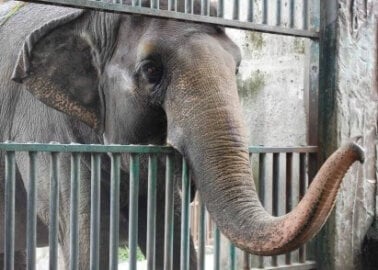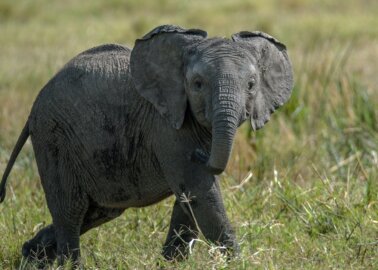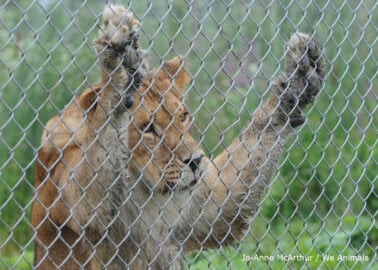World Giraffe Day and the Zoo Industry’s Conservation Con
Earlier this year, Smithsonian magazine reported that “[y]ears of habitat destruction and poaching have reduced giraffe numbers by 30 percent, placing them in the vulnerable category for the first time.” Looking at the near-constant showcasing of baby giraffes in zoos across the UK, you may never have guessed that they were a threatened species.
As zoos post messages about World Giraffe Day on social media, they’d have you believe that they’re all that stands between many of the species they confine and extinction. But animals are almost never released into the wild from UK zoos – and those who are rarely fare well, since being reared in captivity leaves them ill-prepared to cope with life in their natural habitat.
Consequently, breeding programmes serve no true conservation purpose. Zoo babies are crowd-pleasers, but these schemes – under the guise of species preservation – inevitably result in a surplus of less “cute” adult animals, and zoos routinely trade, loan, sell, or barter those they no longer want.
Giraffes don’t often die of old age in captivity. There’s strong evidence that many zoos “dispose” of “surplus” animals, by either killing them or selling them to unethical exotic-animal dealers. This was brought to the world’s attention in 2014 when outrage erupted after Marius, an 18-month-old giraffe, was killed by Copenhagen Zoo and fed to lions, as he was considered useless for breeding.
The argument for keeping giraffes in zoos for educational purposes doesn’t cut it, either. Seeing frustrated, depressed, and often mad animals – many of them thousands of miles away from their true homes, stranded in a colder climate – pacing, swaying, or circling constantly teaches children nothing about natural animal behaviour. We certainly wouldn’t take our kids to prisons in order to teach them about human behaviour. They can learn far more valuable and inspiring lessons by going on virtual field trips, watching nature documentaries that show wild animals where they belong, or watching IMAX movies such as Born to Be Wild.
The only effective and sustainable way to help threatened species is to protect their natural environment, but the massively expensive breeding programmes of zoos divert money from genuine conservation projects. After all, what’s the point of breeding animals if they have no home left to go to?
PETA urges everyone who genuinely cares about giraffes and all the other individuals serving life sentences in zoos to avoid patronising such “attractions” and instead donate to campaigns that actually protect animals in their native habitats.




